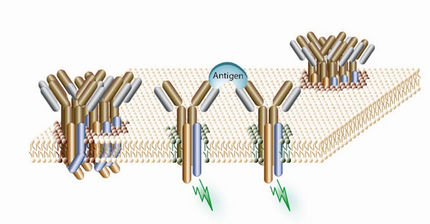Gene linked to lupus might explain gender difference in disease risk
Advertisement
In an international human genetic study, researchers at UT Southwestern Medical Center have identified a gene linked to the autoimmune disease lupus, and its location on the X chromosome might help explain why females are 10 times more susceptible to the disease than males.
Identifying this gene, IRAK1, as a disease gene may also have therapeutic implications, said Dr. Chandra Mohan, professor of internal medicine and senior author of the study. "Our work also shows that blocking IRAK1 action shuts down lupus in an animal model. Though many genes may be involved in lupus, we only have very limited information on them," he said.
Locating IRAK1 on the X chromosome also represents a breakthrough in explaining why lupus seems to be sex-linked, Dr. Mohan said. For decades, researchers have focused on hormonal differences between males and females as a cause of the gender difference, he pointed out.
"This first demonstration of an X chromosome gene as a disease susceptibility factor in human lupus raises the possibility that the gender difference in rates may in part be attributed to sex chromosome genes," Dr. Mohan said.
The multicenter study involved 759 people who developed lupus as children, 5,337 patients who developed it as adults, and 5,317 healthy controls. Each group comprised four ethnicities: European-Americans, African-Americans, Asian-Americans and Hispanic-Americans. In previous genetic studies, the researchers had found an association but not a definite link between lupus and IRAK1. For the current study, the researchers studied five variations of the IRAK1 gene in the subjects, and found that three of the five variants were common in people with either childhood-onset or adult-onset lupus.
To further test the link, the researchers then took mice of a strain that normally is prone to developing lupus and engineered them to lack the IRAK1 gene. In the absence of IRAK1, the animals lacked symptoms associated with lupus, including kidney malfunction, production of autoimmune antibodies and activation of white blood cells.
"The extensive involvement of IRAK1 in the regulation of the immune response renders its association with lupus a prime candidate for careful genetic and functional analysis," Dr. Mohan said.
Future research will investigate the role that X-linked genes, versus hormonal differences, play in the gender susceptibility rates of lupus.
Original publication: Proceedings of the National Academy of Sciences 2009.
Other news from the department science
Most read news
More news from our other portals
See the theme worlds for related content
Topic world Antibodies
Antibodies are specialized molecules of our immune system that can specifically recognize and neutralize pathogens or foreign substances. Antibody research in biotech and pharma has recognized this natural defense potential and is working intensively to make it therapeutically useful. From monoclonal antibodies used against cancer or autoimmune diseases to antibody-drug conjugates that specifically transport drugs to disease cells - the possibilities are enormous

Topic world Antibodies
Antibodies are specialized molecules of our immune system that can specifically recognize and neutralize pathogens or foreign substances. Antibody research in biotech and pharma has recognized this natural defense potential and is working intensively to make it therapeutically useful. From monoclonal antibodies used against cancer or autoimmune diseases to antibody-drug conjugates that specifically transport drugs to disease cells - the possibilities are enormous























































